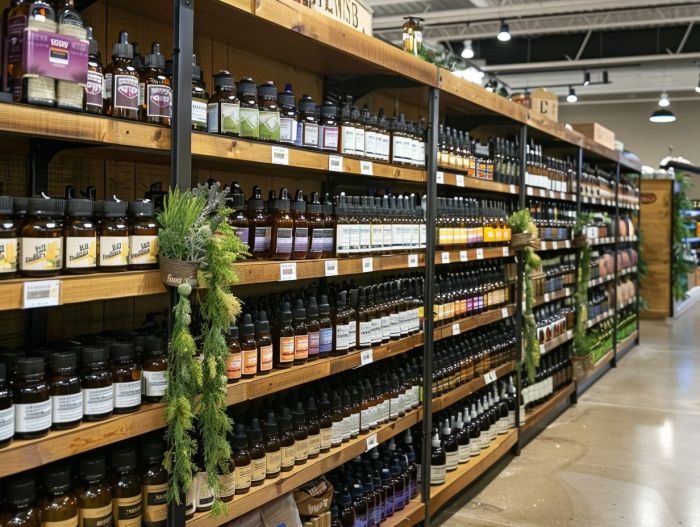Does Whole Foods Sell Seeds for Planting?
Whole Foods Market Seed Selection

Source: epicgardening.com
Does whole foods sell seeds for planting – Whole Foods Market, known for its commitment to high-quality and organic products, offers a diverse selection of seeds for home gardeners. The availability and variety can fluctuate depending on the season and the specific store location, but generally, customers can expect a robust range of options.
Whole Foods Market’s Seed Selection Variety and Pricing
Whole Foods typically stocks a wide variety of seeds, encompassing vegetable, herb, and flower seeds. Vegetable seeds might include popular choices like tomatoes, peppers, lettuce, and beans, while herb selections often feature basil, cilantro, oregano, and chives. Flower seed options frequently include sunflowers, zinnias, and other annuals. The price range varies depending on the seed type, brand, and quantity.
Generally, Whole Foods’ prices are competitive with other specialty retailers but might be slightly higher than those found at large discount stores. Seeds are often sold in small packets, ideal for home gardeners, as well as in larger quantities for more extensive planting projects.
Seed Location and Availability within Whole Foods Stores
The seed section in Whole Foods Market is typically located within the produce or gardening section of the store. Its exact placement may vary slightly between locations. Seed availability is influenced by several factors, including seasonality and regional demand. For instance, seeds for cool-season crops like lettuce and spinach are more readily available in the spring and fall, while warm-season crops like tomatoes and peppers are stocked more heavily during the summer months.
A larger urban Whole Foods store might offer a more extensive selection year-round compared to a smaller rural location, which might have a more limited seasonal range.
| Seed Type | Spring Availability | Summer Availability | Fall Availability |
|---|---|---|---|
| Lettuce | High | Medium | High |
| Tomatoes | Medium | High | Low |
| Basil | Medium | High | Medium |
| Zinnia | High | High | Medium |
Seed Quality, Sourcing, and Treatments
Whole Foods prioritizes sourcing seeds from reputable suppliers who adhere to high-quality standards. Many of their seeds are certified organic, indicating they were grown without the use of synthetic pesticides or fertilizers. The company often emphasizes seeds that are non-GMO (genetically modified organism) and supports sustainable farming practices. Some seeds might undergo treatments such as coating (to improve germination) or pre-germination (to speed up the sprouting process).
These treatments are usually clearly indicated on the packaging.
| Seed Type | Organic Price (Example) | Non-Organic Price (Example) | Key Differences |
|---|---|---|---|
| Tomato | $4.99 | $3.99 | Organic seeds are grown without synthetic pesticides and fertilizers. |
| Basil | $3.49 | $2.49 | Organic seeds ensure a pesticide-free herb. |
Customer Experiences and Reviews
Customer experiences with Whole Foods seeds are generally positive, with many praising the quality and variety. However, some customers have reported issues with seed germination rates or limited selection in certain locations.
Positive Review (Hypothetical): “I’ve had great success with the organic herb seeds I purchased from Whole Foods. They sprouted quickly and produced a bountiful harvest. The quality is noticeably superior to cheaper seeds I’ve tried from other stores.”
Negative Review (Hypothetical): “I was disappointed with the germination rate of the tomato seeds I bought. Only about half of them sprouted, and the plants were smaller and weaker than expected.”
Frequently asked customer questions include inquiries about seed germination rates, organic certifications, and specific seed varieties.
Fictional Customer Assistance Scenario: A customer approaches a Whole Foods employee seeking advice on selecting seeds for a butterfly garden. The employee guides the customer toward specific flower seeds known to attract butterflies, explaining the planting requirements and anticipated blooming periods.
Alternative Seed Sources, Does whole foods sell seeds for planting

Source: oiltherapycentral.com
While Whole Foods offers a convenient selection of seeds, gardeners may also consider local nurseries or online retailers for alternative options. Local nurseries often carry regionally adapted seeds and provide personalized gardening advice. Online retailers offer a wider selection but might have longer shipping times and potentially higher prices. Saving seeds from previously grown plants is another option, allowing gardeners to cultivate heirloom varieties.
Heirloom seeds, representing older, often open-pollinated varieties, are sometimes available at Whole Foods, offering unique characteristics and flavors.
Buying seeds from different sources offers varying advantages and disadvantages. Local nurseries provide personalized service and regionally adapted seeds, while online retailers offer vast selection and convenience. Saving seeds from plants ensures genetic diversity and cost-effectiveness but requires careful storage and handling.
Questions Often Asked: Does Whole Foods Sell Seeds For Planting
Are Whole Foods seeds typically heirloom varieties?
While Whole Foods may carry some heirloom seeds, their selection is not exclusively heirloom. Availability varies by location and season.
Do Whole Foods employees provide gardening advice?
While Whole Foods Market’s focus is primarily on grocery items, their selection of seeds for planting can be somewhat limited. If you’re looking for a broader range of grass seeds, however, you might consider checking if a landscaping company handles planting, such as whether does TruGreen plant grass seed. Returning to Whole Foods, you might find a better selection of vegetable or herb seeds compared to lawn varieties.
While not all employees are expert gardeners, many are knowledgeable and happy to help customers find appropriate seeds for their needs.
Can I return seeds if they don’t germinate?
Whole Foods’ return policy regarding seeds may vary. It’s best to check their store policy or contact customer service directly.
How do Whole Foods’ seed prices compare to online retailers?
Prices can fluctuate. Online retailers often offer competitive pricing, but Whole Foods provides the convenience of in-store purchase.





















